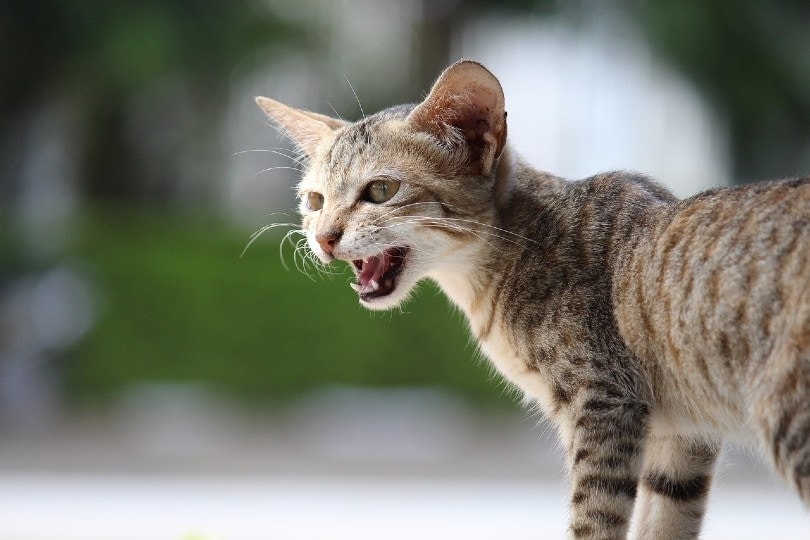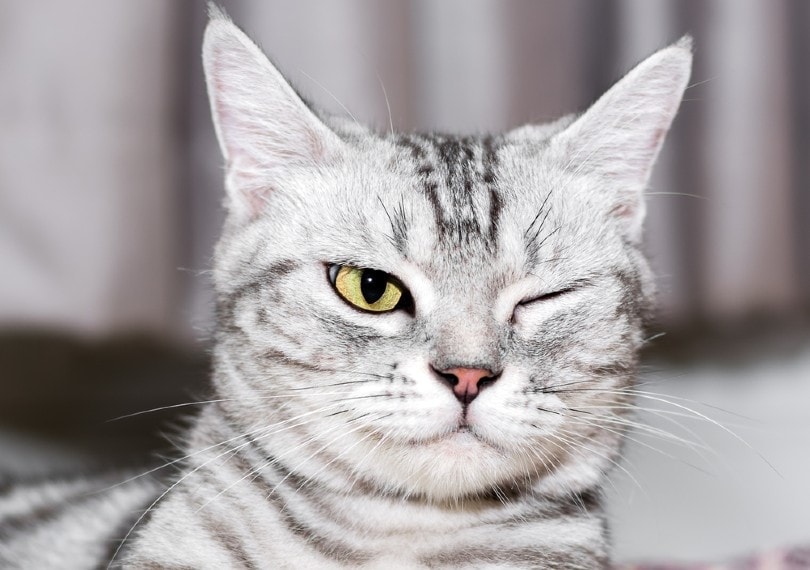Can Cats Eat Curry? Nutritional Facts & Safety Guide

Updated on

If you’re a cat parent, you may own a cat that is intrigued by everything you cook or eat. With all the spices used in curry, it makes sense that your cat may be attracted by its smell, as cats have a very strong sense of smell in comparison to humans. While you’re in the kitchen whipping up your favorite curry, a thought may cross your mind.
Can cats eat curry? Is it safe for them? While it’s understandable for pet owners to share their favorite dishes with their beloved fur babies, it isn’t always the best idea. When it comes to curry and your cat, letting them share a taste is not in their best interest. Let’s take a look at the reasons why your cat shouldn’t eat curry. This will help you better understand your feline and some nutritional do’s and don’ts to keep them healthier.
 Is Curry Toxic to Cats?
Is Curry Toxic to Cats?
When discussing whether curry is toxic to cats, you must remember not every curry is made with the same ingredients. For many, some ingredients are considered a staple for a great-tasting curry. Two ingredients in many curries are onions and garlic, which are toxic to your kitty if they eat them.
Other spices are commonly added to curry, and these, depending on the type, may contain chili peppers (Capsicum annuum) and a compound called capsaicin, which can lead to mouth and throat irritation, drooling, and sometimes gastrointestinal, respiratory, and other signs, depending on the concentration. Chili pepper is not listed either as safe or toxic for cats by the ASPCA, but other spices and plants from the same family are considered toxic, so caution should be exercised.1

The Dangers of Garlic and Onions
Ingesting garlic and onions is dangerous for our pets. When it comes to large-sized dogs, a very small taste may not be as dangerous, depending on the dog’s size and the amount, but cats aren’t always as lucky. Even a tiny amount can cause signs of toxicity due to their smaller body weight and lower toxicity dose than for dogs. If your kitty eats garlic and onions at a toxic dose, their red blood cells will become damaged, leading to Heinz body anemia.
If you have seen your cat eat garlic or onions or foods containing these ingredients, or you suspect they may have done so, contact your vet immediately. It’s best that your cat receives prompt treatment in order to reduce signs of toxicity or completely avoid them through the process of induced vomiting and stomach decontamination, rather than to wait for signs of toxicity to occur.
However, if you have not seen your cat ingest any of these food ingredients with garlic or onions but have noticed your feline friend suffering from the following signs, get them to a veterinarian immediately.
- Sudden weakness
- Exercise intolerance
- Fever
- Loss of appetite
- Reddish-brown urine (in severe cases)
- Pale lips, mouth, and gums
- Jaundice
- Shallow or labored breathing
- Fast heart rate
- Collapse
Is Curry Beneficial to Cats?
As we’ve mentioned, most curries include garlic and onions, which are toxic for kitties. However, if you decide to make a kitty-friendly curry by leaving out ingredients that can upset your pet, you may wonder if the veggies and protein used in the dish are beneficial. While the dish may not benefit your cat, some of the ingredients on their own can if prepared adequately.
As obligate carnivores, cats don’t have the same need for healthy greens as we do, and their diet is based on high-quality animal protein. Cats do not naturally eat or show interest in fruits or veggies, and the high fiber and carb content in this type of food is not suitable for them.
Bell peppers, spinach, kale, and carrots are only a few vegetables that are considered safe for most cats as a very occasional treat in moderation, although they are unlikely to reap any of the benefits that humans will. Consult with your vet before offering any fruit or veg to your cat, particularly if they are suffering from diabetes or digestive or pancreatic issues, as these may not be appropriate snack choices for them, however infrequent they may be.
There are more appropriate treat options for your feline friend, such as boiled meat without any spices or additives, that your cat can enjoy and actually benefit from.

Is Curry Actually Appetizing to Your Cat?
Cats are naturally curious animals and some cats may be particularly attracted to what their owners are interested in. This is why you may find your cat trying to get involved when you’re on your laptop or reading your favorite book. A cat’s curiosity doesn’t end with objects. They may be curious about the food you eat as well. Having our pets pop up and try to get a taste of what we’re eating is second nature to those of us who own animals.
The smell of curry can interest your kitty. Cats, similarly to dogs, have a great sense of smell. The pungent aroma curry puts off may be an immediate attractor for your kitty. Just like us, they may love the smell of great food cooking in the house, particularly if it contains animal protein.
Once your curry is made, some cats may be curious and try to get their fair share, while others will show no interest in it whatsoever. If you’ve made a very plain and kitty-friendly curry, a small taste is unlikely to cause your cat any harm, but they are not going to reap any benefits from it either. It’s essential, however, not to let them get accustomed to curry, as it may lead to a stomach upset.
Now that you know what you can safely feed your cat, it’s just as important to find a bowl that supports their health and well-being. With whisker-friendly bowls and a wide tray to catch any spills, our Hepper NomNom Cat Bowl is our favorite option.
 In Conclusion
In Conclusion
While all cats are different, your kitty may be interested in a curry when you eat it. As we’ve mentioned, it is possible to offer some of the ingredients to your cat, such as plain cooked meat, before adding it to your curry, but that doesn’t mean curry is an appropriate or even safe food for cats.
Examine the ingredients of any food your kitty may have tasted on purpose or by accident, especially curry since garlic and onions are commonly used. Some substances inside your food could be toxic to your cat and leave them with unnecessary and severe illness. For your kitty’s well-being, avoid curry and offer your feline species-appropriate treats, such as cooked chicken meat without any additives, boiled egg, or commercial cat treats.
Related Read:
- Can Cats Eat Onions? Vet-Reviewed Risks & Safety Guide
- Can Cats Eat Garlic? Vet-Reviewed Facts & Safety Tips
Featured Image Credit: sti300p, pixabay

 Is Curry Toxic to Cats?
Is Curry Toxic to Cats?









